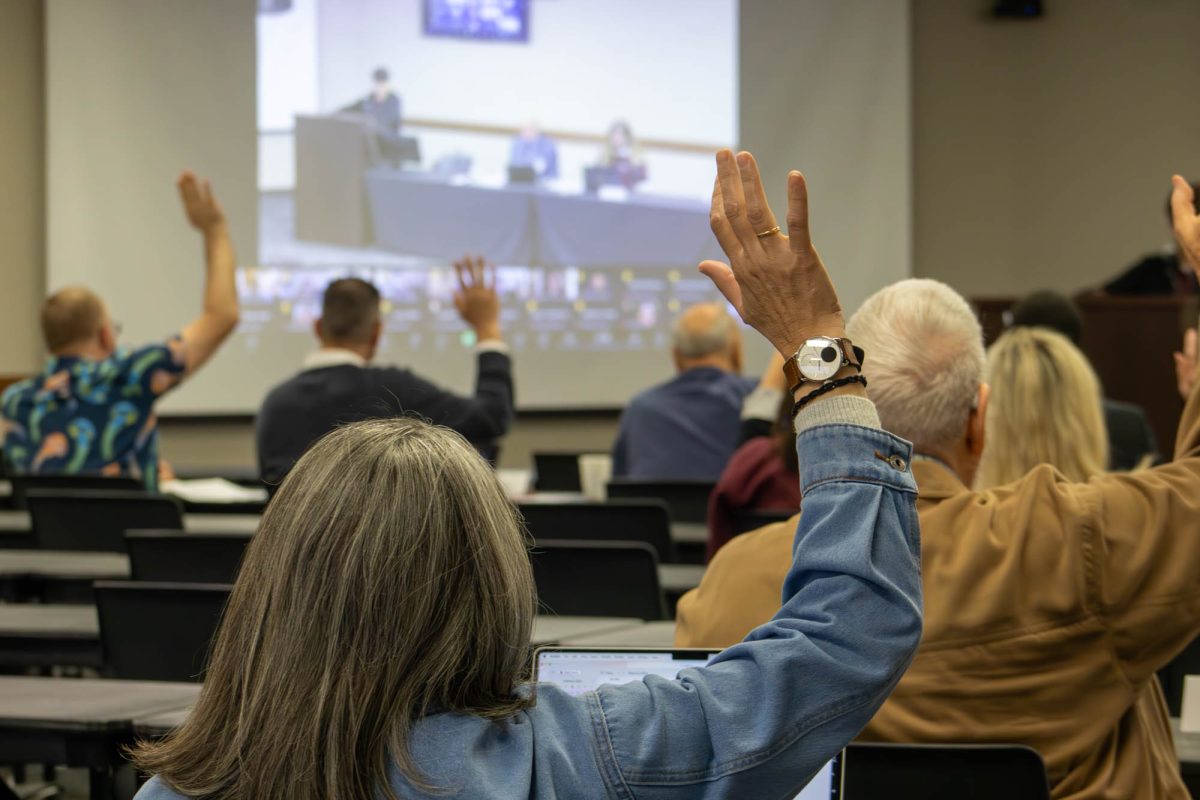The 89th Texas Legislature convenes on Jan. 14 for the first time in two years, kicking off a months-long session that will see Republican lawmakers attempt to pass school choice legislation, reinforce anti-DEI laws and review the role faculty senates play at universities.
Following last November’s elections, Republicans enter the biennial meeting with an 88-62 majority in the Texas House of Representatives and 20-11 majority in the state Senate, a strengthened makeup for Gov. Greg Abbott as he pushes his top priority: school choice legislation.
“The governor is pushing the ESA school vouchers, the education savings accounts,” Bush School professor Ann Bowman said. “That is certainly an issue that was big during [election] campaigns in summer and fall, so that’s going to be at the top of the list.”
If Abbott’s vision for the controversial legislation passes, Texas families would receive access to a state-funded account that can be used to fund private education. His last attempt to pass the initiative in the 88th Legislature failed after fierce opposition from Democrats and rural Republicans who argued that funding private education would divert sorely needed money from public schools.
The governor’s largest barrier, the Texas House of Representatives, fell during last year’s election after Republicans targeted school choice opponents in elections statewide. A day after the voting, Abbott said at least 79 of the 150 representative-elects supported the initiative and reaffirmed his commitment to passing it.
Cities and school districts across Texas have similarly reaffirmed their opposition to the plan, including College Station ISD and Bryan ISD. In a legislative priorities list, Bryan ISD asked the legislature to “ensure public tax dollars are not diverted to private entities since they are not obligated to accept all children and are not monitored at the same level as Texas public schools.”
If passed, Texas would join 30 other states that offer a similar voucher program.
“Texas is kind of playing catch-up on that,” Bowman said. “But it was certainly out in front on some of the DEI legislation, for example, because a lot of other states have looked to Texas as a model.”
Passed during 2023’s legislative session, Senate Bill 17 banned state universities from establishing or maintaining DEI offices and pursuing similar initiatives. It went into effect last year and had several wide-reaching implications, including the shuttering of Texas A&M’s Pride Center.
The Texas Senate’s Subcommittee on Higher Education, which spearheads legislation related to universities in the upper chamber, said in its list of priorities for the next session that it aims to monitor SB 17’s implementation while also examining and recommending reforms to university programs and certificates that “maintain discriminatory” DEI policies.
“There’s a big concern about compliance,” Bowman said. “Are universities actually complying with Senate Bill 17? So I think we’ll see some kind of enforcement efforts in new legislation. Whether it be successful, I think it might — simply because of the kind of the makeup of the legislature and concern that institutions of higher education might not be following the rules quite as strictly as [the legislature] would like.”
Other listed committee priorities include reviewing faculty tenure, combating antisemitism on campuses and analyzing faculty senates to “establish guidelines for the role and representation of faculty.” A&M’s faculty senate has several important administrative duties, such as a role in forming the budget and the ability to affirm or deny program creations and cuts.
“In terms of faculty senates, it’s such an interesting one because it’s so internal to the institution, so internal to the university,” Bowman said. “That’s reaching pretty far into our operations.”
Over 2,500 bills have been introduced for the upcoming session, a number set to greatly increase over the next several months. By its end, the last legislature ultimately saw 11,807 bills introduced.
“I’ve heard a lot of people talking about issues like property taxes and what to do to try to get them under control,” Bowman said. “Border security continues to be an issue, so I think we’ll see a lot of that. There’s a lot of money coming into the state on the issue of casino gambling or at least expanding gambling. Whether it be casinos or not remains to be seen, but sports betting certainly.”
The 89th legislative session ends on June 2, beginning another two-year break before the 90th Legislature takes charge in 2027.





















